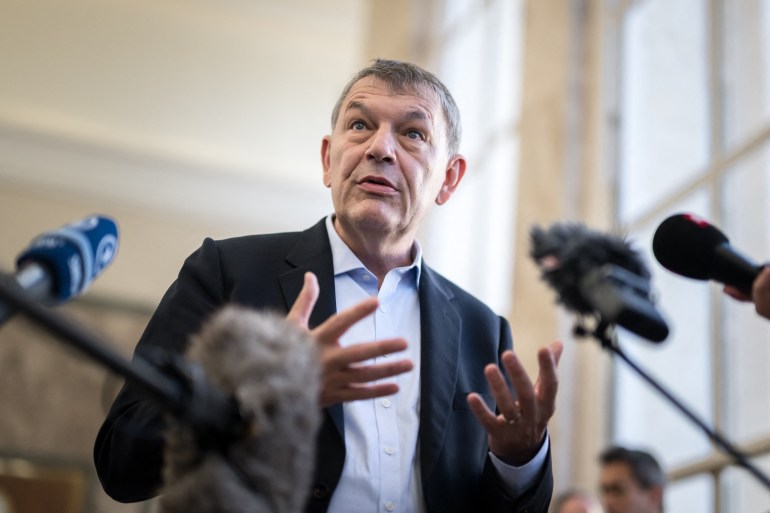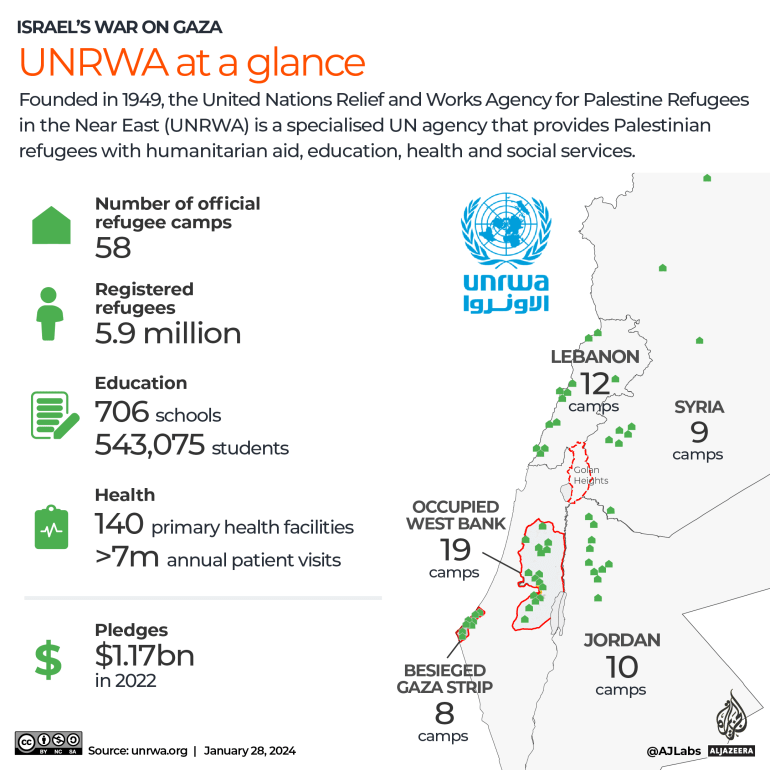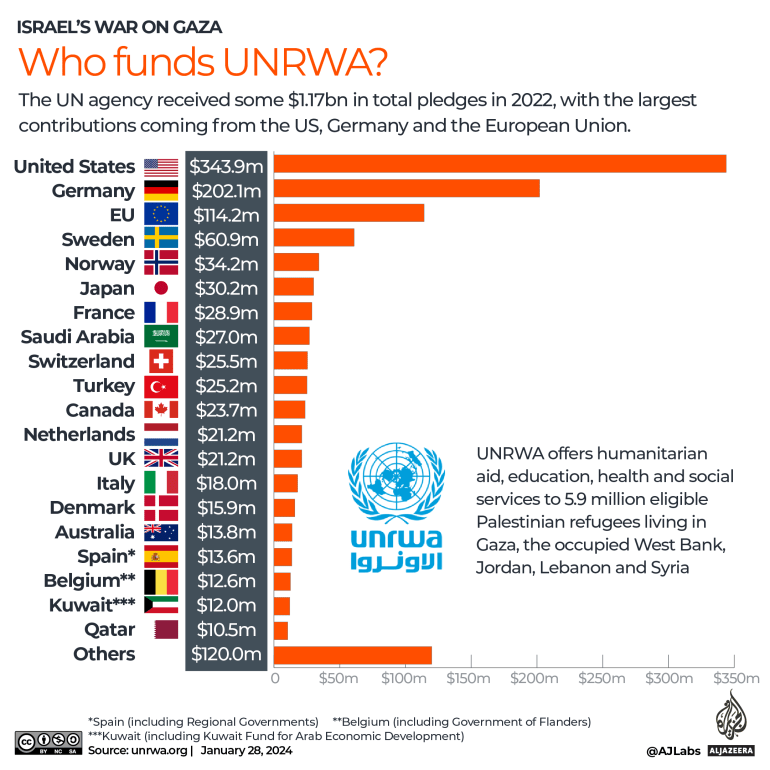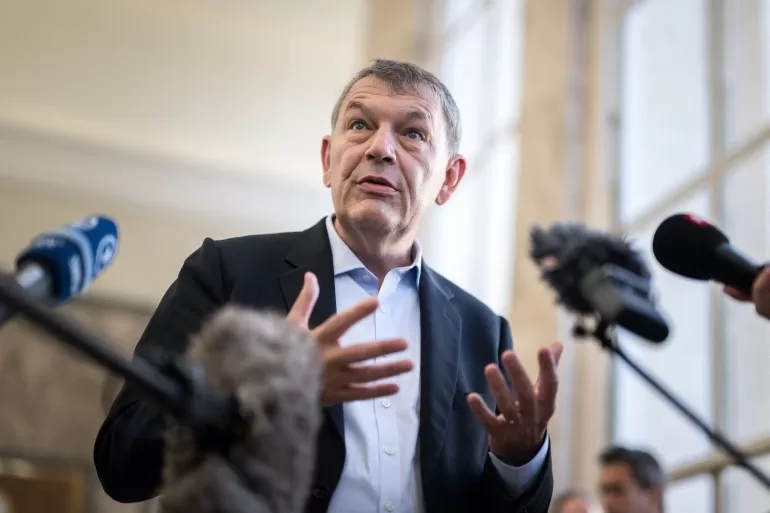The UNRWA, which provides healthcare, education and other vital services to the Palestinian people, was accused by Israel last month of having links to the Hamas attack on southern Israel on October 7, prompting more than 10 donor countries, including the United States, Germany, the European Union and Canada, to suspend financial support.
The funding from these countries makes up the bulk of all funding received by the UNRWA. Being cut off in this way means the agency will run out of money altogether within weeks, it said.
Ireland is one of the few countries to hold firm, however. “In Gaza, we are bearing witness to a humanitarian catastrophe,” said Irish Minister for Foreign Affairs Micheál Martin on Thursday. “People are in dire need of the most basic life-saving provisions – food, water, shelter. In these most harrowing conditions, facing the prospect of further military escalation, UNRWA is the backbone of the humanitarian response. It urgently needs support from all UN member states.”

Why is the UNRWA so important?
The UNRWA was established in 1949 in the wake of the creation of the State of Israel.
Indeed, between November 29, 1947, when the UN General Assembly voted to partition the fading British Mandate of Palestine into one Jewish and one Arab state, and the establishment of Israel itself on May 14 the following year, armed fighters had ethnically cleansed thousands of Palestinians from their homes.
This clearance of Palestinians from their homes and land continued even after armies from surrounding Arab nations invaded Israel on May 15, 1948 and by the first half of 1949, at least 750,000 Palestinians in total had been forcibly expelled or had fled from their homeland.
From the ashes of what Palestinians still refer to as the Nakba (the “catastrophe”) was born the UNRWA, which operates not only in the Israeli-occupied Palestinian territories, but also in Jordan, Lebanon and Syria where Palestinian refugees today number in the millions.

How much of a shortfall in funding is the UNRWA facing and why?
Israel, which has killed nearly 30,000 Palestinians in the Hamas-run Gaza Strip since it began shelling the impoverished enclave on October 7 last year, alleges that 12 UNRWA staff from the body’s 13,000 workers in Gaza were involved in the Hamas assault on Israel, which killed 1,139 Israelis.
Israel’s allegations, compiled in a six-page dossier, were enough for the likes of the US, Germany and the EU to pause their contributions to the UNRWA which, in 2022, were worth $343.9m, $202.1m and $114.2m respectively.
The UNRWA estimates that donor suspensions will leave it with a $440m funding shortfall.

Which countries have suspended funding?
As the top three funders to the UNWRA’s $1.17bn budget in 2022, the decision by the US, Germany and the EU to suspend donations has come as a bitter blow to the nearly 75-year-old UN body.
Ilan Pappé, author of The Ethnic Cleansing of Palestine, issued a withering criticism of those countries choosing to suspend funding, telling Al Jazeera that this was “the Global North following blindly here the Israeli cue on UNRWA”.
The full list of countries to have suspended funding to UNRWA is as follows:
- Australia
- Austria
- Canada
- Estonia
- Finland
- Germany
- Iceland
- Italy
- Japan
- Latvia
- Lithuania
- The Netherlands
- New Zealand
- Romania
- Sweden
- Switzerland
- United Kingdom
- United States
Which countries are continuing to support the UNRWA?
Countries including Belgium, Norway, Saudi Arabia, Spain, Turkey and, of course, Ireland, have decided to continue supporting the UNRWA.
On February 1, the Belgian deputy prime minister, Petra De Sutter, whose country provided the UNRWA with $12.6m in 2022, posted on X: “Belgium will continue to fund UNRWA. The agency is irreplaceable in providing urgent and crucial humanitarian relief within Gaza.”
Speaking at Tuesday’s World Governments Summit in Dubai, Turkish President Recep Tayyip Erdogan, whose country funded the UN body to the tune of $25.2m in 2022, said: “It hurts us to see the attacks against the staff of the UN Palestinian agency and we must extend our support.”
The day before Lazzarini secured funding for the UNRWA from the Irish government, the country’s prime minister, Leo Varadkar, summed up the feelings of his government towards Israel’s war on Gaza.
“It’s very, very clear to me … that Israel is not listening to any country in the world, I don’t even think they’re listening to the Americans anymore,” he told the Irish parliament on Tuesday. “They have become blinded by rage.”
Why does Ireland feel an affinity for the Palestinian people?
The historical Irish struggle to free itself from the yoke of British domination is one reason why many in the Republic of Ireland feel a strong affinity with Palestine, which, as Israel’s brutal war on Gaza illustrates, has suffered under Israeli occupation for generations.
The Irish Free State, which Northern Ireland opted not to join, was established in 1922 after several years of conflict between Irish nationalists and the British government, with the country officially becoming a republic 27 years later.
In 1980, Ireland became the first member of the European Community (now the EU) to endorse Palestinian statehood and the country’s support resonates to this day.
Indeed, in the early weeks of Israel’s continuing war on Gaza, when countries in the West were rushing to support Israel’s “right to self-defence” in the wake of the Hamas assault, Varadkar offered a more nuanced view.
“What I’m seeing unfolding at the moment isn’t just self-defence,” said the Irish prime minister in November last year. “It looks, resembles, something more approaching revenge. That’s not where we should be. And I don’t think that’s how Israel will guarantee future freedom and future security.”
